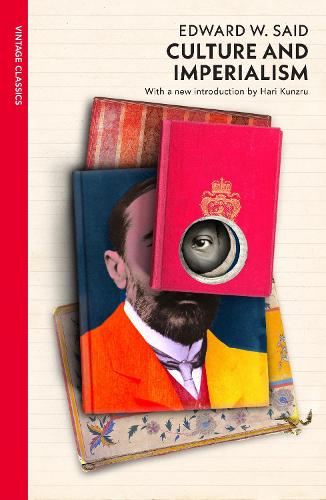
Culture and Imperialism
(Paperback)
Available Formats
Publishing Details
Culture and Imperialism
By (Author) Edward W Said
Vintage Publishing
Vintage Classics
11th February 2025
21st November 2024
United Kingdom
Classifications
General
Non Fiction
Literary studies: postcolonial literature
Colonialism and imperialism
Cultural studies
Literary essays
Social and cultural history
809.894
Physical Properties
Paperback
544
Width 130mm, Height 198mm, Spine 35mm
378g
Description
From the author of Orientalism, a searching examination of western culture and the roots of imperialism 'Readers accustomed to the precision and elegance of Edward Said's analytical prowess will not be disappointed . . . Those discovering Said for the first time will be profoundly impressed' Toni Morrison Following his profoundly influential study Orientalism, Edward W. Said turned his attention to the Western world, tracing the connections between imperialism and European art, literature and music. From Jane Austen to Salman Rushdie, from Yeats to media coverage of the Gulf War, Culture and Imperialism initiates a dialogue between culture and the political and economic fabric of its time. Vast in its scope and stunning in its erudition, this collection of essays remains as urgent today as it was on first publication.
Reviews
Culture and Imperialism has an eloquent, urgent topicality rare in books by literary critics -- Camille Paglia
Readers accustomed to the precision and elegance of Edward Said's analytical prowess will not be disappointed by Culture and Imperialism. Those discovering Said for the first time will be profoundly impressed -- Toni Morrison
Edward Said helps us to understand who we are and what we must do if we are to aspire to be moral agents, not servants of power -- Noam Chomsky
Author Bio
Edward Said was born in Jerusalem in 1935. In 1951 he attended a private preparatory high school in Massachusetts, America and he went on to study at Princeton University for his BA and at Yale for his MA and PhD. He became University Professor of English and Comparative Literature at Columbia University. Said was bestowed with numerous honorary doctorates from universities around the world and twice received Columbia's Trilling Award and the Wellek Prize of the American Comparative Literature Association. He is best known for describing and critiquing 'Orientalism' and his book on the subject was published in 1978. He died in 2003.
